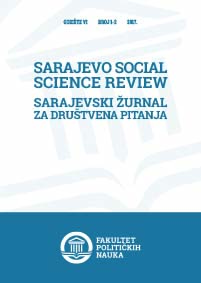Porodična politika u tranziciji: ka novom familijarizmu
Family policy in transition: towards the new familiarism
Author(s): Sanela BašićSubject(s): Politics / Political Sciences, Politics, Political history, Social history, Family and social welfare, Transformation Period (1990 - 2010)
Published by: Fakultet političkih nauka - Univerzitet u Sarajevu
Keywords: family; women; family policy; transition; Bosnia and Herzegovina;
Summary/Abstract: Political ideology of gender and gender relations is considered a crucial factor in shaping family policy as a relatively late and less prominent component of modern social policy systems. It is therefore surprising that, despite widespread theses about the tendencies of re-patriarchalisation of society in transition from socialism to (neo)capitalism, the issue of consequences of transition in the area of family policy from a gender perspective remained on the margins of public interest. Specifically, the focus of social and partly scientific interest in the changed position of women in the Bosnian transitional society was confined in the last two decades exclusively to the issues of marginalization of women in terms of political representation and gender-based or domestic violence. The objective of this study is to map the transitional changes in the area of family policy in BiH through review and analysis of relevant policies and practices of social and labour legislation at the level of three administrative units: FBiH, RS and BD. The presented analysis indicates that the transitional period in the area of family policy in BiH has brought a return to the pre-socialist period of maternalistic familiarism, whose current policies and practices, paradoxically at the same time belittle and devalue not only the institution of motherhood, but also the very idea of family itself.
Journal: Sarajevski žurnal za društvena pitanja
- Issue Year: VI/2017
- Issue No: 1-2
- Page Range: 25-48
- Page Count: 24
- Language: Bosnian

